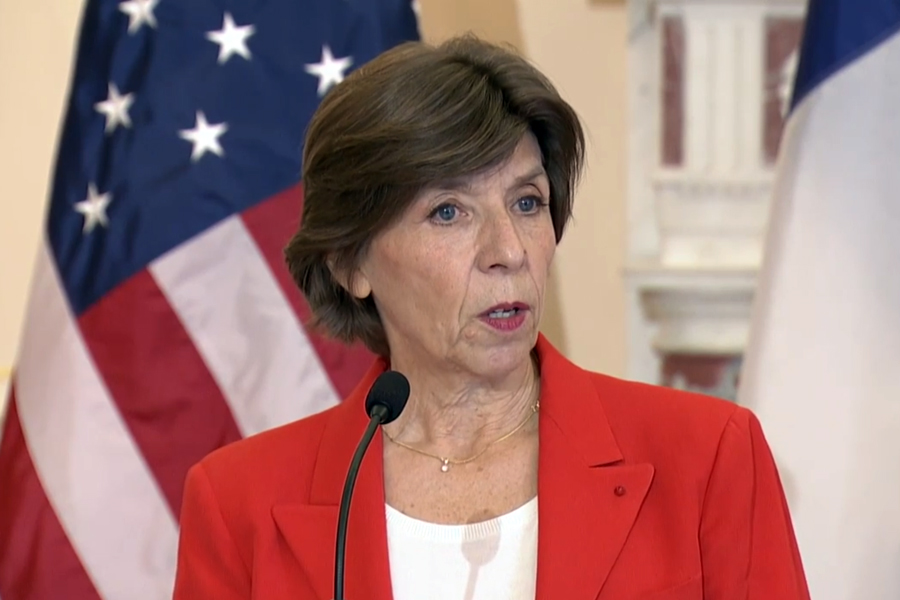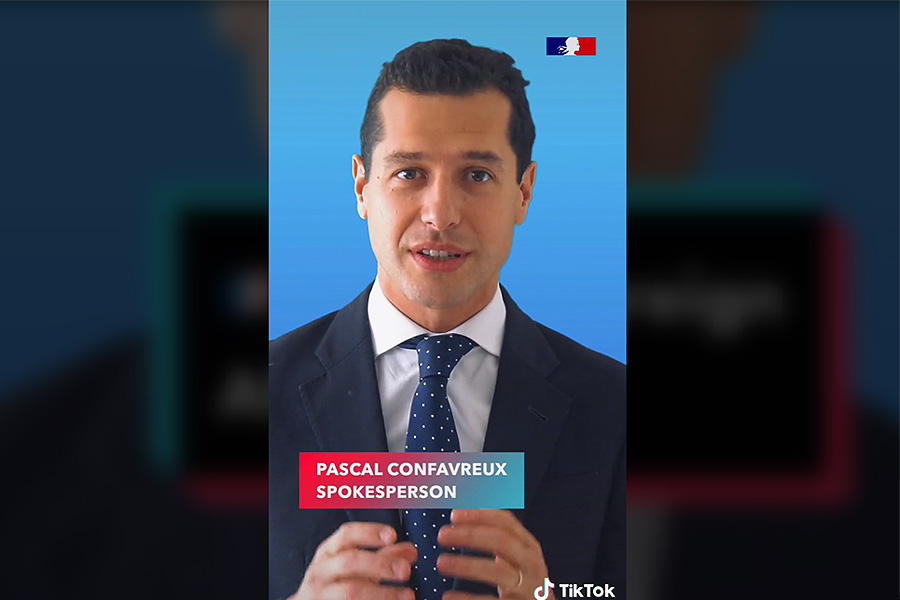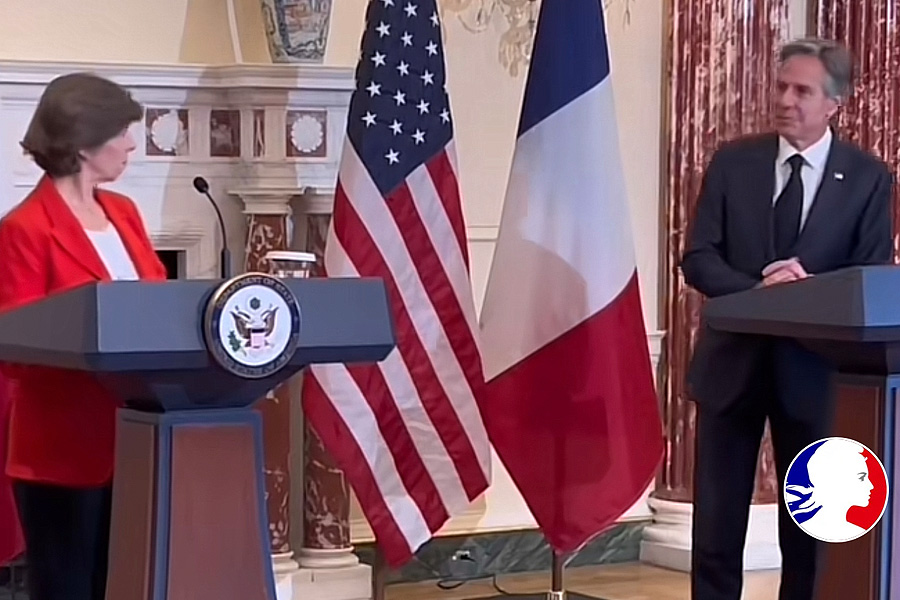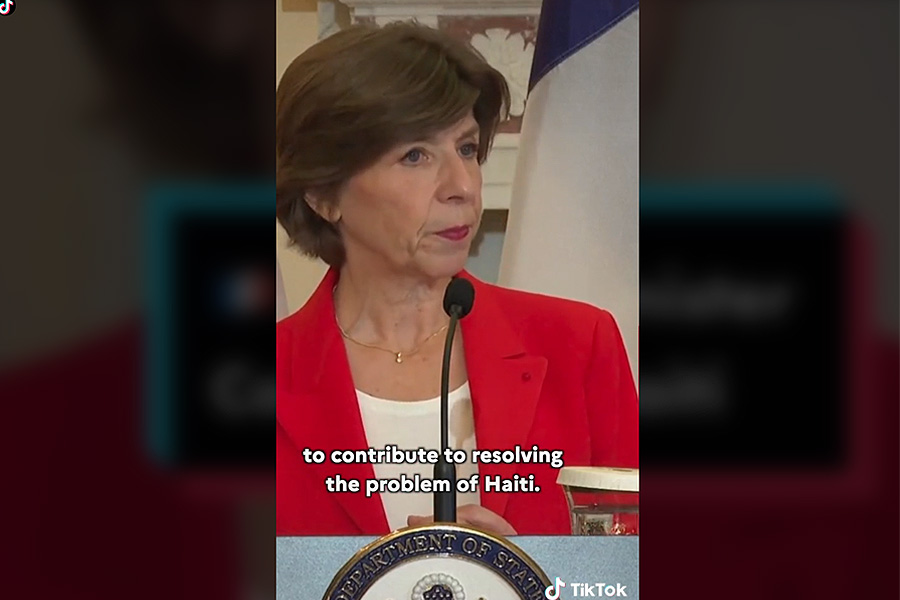Minister for Europe and Foreign Affairs Colonna in the U.S. – Speech at the CSIS
Minister for Europe and Foreign Affairs Colonna in the U.S. – Speech at the CSIS
Minister for Europe and Foreign Affairs Colonna in the U.S. – Speech at the CSIS
SUMMARY
French Minister for Europe and Foreign Affairs Catherine Colonna at the Center for Strategic and International Studies think tank in Washington DC on October 21, 2022
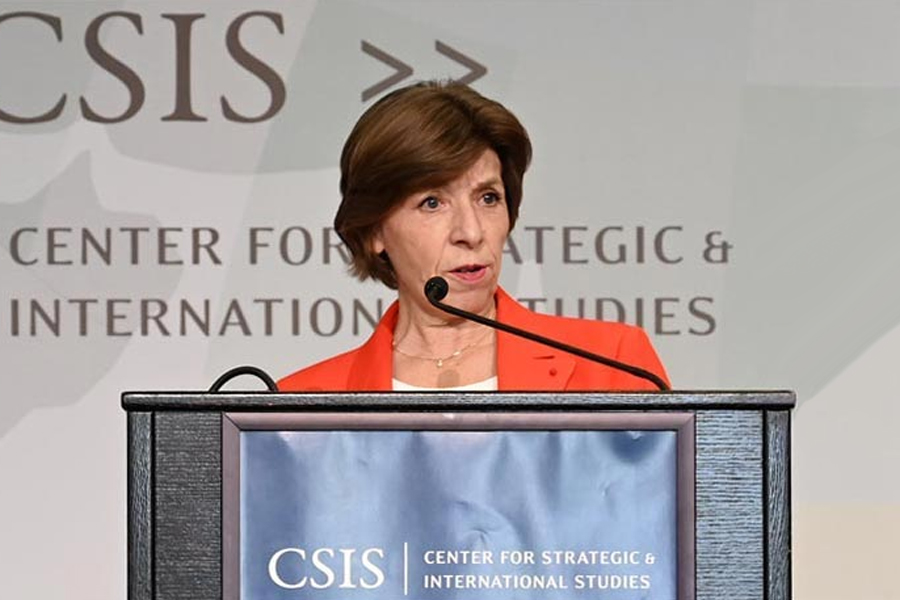
Metadata
Release date: October 21, 2022
Tag(s): Diplomacy, Foreign policy

Metadata
Release date: October 21, 2022
Tag(s): Diplomacy, Foreign policy

Transcript
Ladies and gentlemen,
Dear friends, good morning everyone,
It is good to be back in Washington D.C. after some time and good to see some people I’ve known for some time as well. It is a pleasure to be with you today, I started my career here as you just heard in Washington as a young or very young diplomat. Of course much has changed since then, I am 40 years older, my French accent is getting stronger and stronger and the gastronomy scene in D.C. has changed for the better, I have been told, but I’d like to experience it myself…
And yet, today as back then, we are challenged to address a strategic confrontation. As recently and tragically experienced with Russian missiles indiscriminately raining down on Ukrainian cities, along with Iranian drones, we are once again being challenged by an imperial power, whose aggression puts Europe and global security at risk.
A time of crisis is a time to tighten ranks among allies, one more time. This is especially true for France and the United States, which are strong and oldest allies. Now is the time to reaffirm the meaning of our alliance and the principles on which it is based.
I am therefore deeply grateful to the Center for Strategic and International Studies for providing this unique opportunity to discuss the state of the transatlantic relationship.
Be it on the European continent, in Asia, in the Middle East or in Africa, we are indeed currently experiencing a time of deep turmoil, on an almost unprecedented scale.
Over the past eight months, Europe has been at the crossroads of renewed geopolitical tensions. On February 24th, Russia unleashed its illegal, unprovoked, unjustified and brutal military aggression against Ukraine. It ushered in a new era of war on the continent, the likes of which Europe had not seen since World War Two.
Russia’s war violates the sovereignty of Ukraine, that is a fact. It puts the security and stability of Europe and the European continent at risk, that is also a fact. But the stakes go far beyond Ukraine and Europe.
President Putin’s war threatens food and energy security globally. It undermines the fundamental principles of the multilateral order, which France and the United States are committed to uphold as Permanent members of the UN Security Council : sovereignty, territorial integrity, non-aggression, pacific settlement of disputes.
If Russia’s actions go unanswered, wars of conquest might become the new normal in our international relations. Anywhere in the world, those who are tempted to pursue territorial expansion through aggression, invasion and mass crimes, could feel encouraged. We cannot afford that.
As President Macron underscored at the General Assembly a few weeks ago in New York, we must push back against the brutal “return to the age of imperialism and colonies”.
Beyond Ukraine, crises have multiplied across the globe: the terrorist threat still looms in the Levant and in the Sahel region, Iran’s nuclear ambitions and aggressive regional behaviour fuel growing instability in the Middle East and threaten the nuclear non-proliferation regime; Russia is using the Wagner group to increase its influence in Africa, as in the Central African Republic or in Mali, exploiting resources and carrying out massive human rights violations ; states and non-states actors spread disinformation and use cyber as their new weapon.
Strategic competition also increased and became even harsher in the Indo-Pacific, with China’s growing assertiveness and even sometimes aggressiveness, as recently experienced in the Strait of Taiwan.
For decades, every US administration, democrat and republican alike, has asked Europe to take more responsibility on the world stage, specifically when it came to its own security and to shoulder a larger part of the burden. This has often been encapsulated in one figure, the 2% NATO target.
We, Europeans, are ready, able and willing to meet our responsibilities. Over the past few years and especially in the context of the war in Ukraine, the European Union has strived to become an even more reliable partner for the US.
Having faced several existential crises over the last decade, Europe could have collapsed, some might have hoped for it. It didn’t and instead it made significant headway on the economic front, while dealing with the financial crisis of 2008.
It overcame Brexit, which many interpreted then as the beginning of European disunion. It showcased unprecedented solidarity and efficiency during the COVID-19 pandemic. It demonstrated an impressive unity, responsiveness and determination while confronting Russia’s military aggression of Ukraine.
On that fateful early morning of February 24th, President Putin did not only make a strategic mistake regarding Ukraine and the people of Ukraine, whose resistance and courage I witnessed during my three visits as Minister, to Kiev. He also made a strategic miscalculation regarding Europe.
Russia expected Europe to shy away from the challenge. It expected weakness and division. The exact contrary happened, taking aback all who would have bet against the EU: we stand united, we stand undeterred and we stand strong in facing Russia’s imperialism.
We have acted swiftly and decisively. Within 48 hours after Russian forces began invading Ukraine, the European Union, under, may I recall, the French Presidency of the Council, adopted massive sanctions which we have continuously strengthened since then.
The 27 Member States have already adopted 8 rounds of massive sanctions. Just this Monday, four days ago, with my fellow EU colleagues and Dmytro Kuleba, who spoke to us from a bunker, while Iranian drones were sowing death and destruction, we started work on a 9th sanctions package – and we decided to sanction Iranian individuals and entities responsible for the drone transfers to Russia. These sanctions were adopted in a record time, since they enter into force today.
In close coordination with the United States and our other G7 partners, these sanctions are targeting those responsible for the invasion and for the horrendous crimes carried out in Ukraine. They are crippling the Kremlin’s war effort by suffocating entire strategic sectors of the Russian economy, such as the car, airspace and of course defense industries. Access to critical technologies and goods like semi-conductors for example has been dramatically reduced, if not entirely cut off. And this is only the beginning.
We stand by our Ukrainian partners and we will support them as long as it takes. Since the beginning of the war, Europe has mobilized over 22 billion euros in economic, humanitarian, macroeconomic, diplomatic and of course military assistance, without even mentioning the 17 billion euros paid by the EU budget to support the 10 million Ukrainian refugees welcomed by our EU countries.
We have pledged more than 3 billion euros under the “European Peace Facility” to bolstering the capacities of the Ukrainian armed forces. EU supports adds up to the significant bilateral efforts made by every single European Members States, be it in the field of weapons, non-lethal equipment, intelligence or training.
The EU also launched this Monday a military assistance mission, which will allow us to train up to 15,000 Ukrainian soldiers, including 2000 in France on European soil.
We are also helping Ukraine with economic and financial assistance: 9 billion Euros have so far been pledged, of which two-thirds have already been disbursed.
Europe has also welcomed 10 millions of Ukrainian refugees and has allocated hundreds of millions of euros for humanitarian aid. A few weeks ago, France sent a ship with more than 1,000 tons of humanitarian aid.
We are doing our part and our hand is steady. Europe accepts to bear the cost of this war while working with the United States to limit its economic impact. We must convince our citizens that we, the EU and the US, are doing our utmost to tackle this issue including for our countries.
These decisive steps are a response to the dire circumstances, but are also the testament of larger trends:
First, European defence is taking shape.
In one short semester, the European Union managed to boldly go where it had not dared venture before. At the Versailles Summit in March, EU leaders adopted an ambitious agenda aimed at fleshing out the European sovereignty both on economic and on security issues.
This means achieving energy independence from Russia by reducing oil and gas imports. This means mobilizing our industrial policy to better secure our supply chains in strategic components and reducing our excessive dependence towards external suppliers such as China. This means pursuing a new agenda of common defence investments in Europe and a common approach to the threats we are facing under the “Strategic Compass”.
Let me say a few words about the relationship between the EU and NATO. There is a classic and common misconception that an autonomous European defence would undermine NATO. It is not new, I have been in this country before. Allow me to say that nothing could be further from the truth, nothing. As stated clearly at the NATO Summit in Madrid in June but we have stated it before in other NATO summit, but also in the Versailles summit in March, this autonomous European defence is not only compatible to, but complementary with NATO.
NATO is and will continue to be the cornerstone of our collective defence. A stronger NATO is good for Europe, just as a stronger Europe is good for NATO.
As you know, France is significantly contributing to the reinforcement of NATO’s posture in Eastern Europe right now, we are doing it: we are framework nation in Romania, with a deployment that is soon to reach the brigade level; we are present in Estonia – I will be there on Monday; and we take part to air policing missions in the Baltic States.
While strengthening its contribution to NATO’s military posture, France has pushed for an ambitious common security and defence policy for the EU during its Presidency of the European Council during the first half of 2022.
A second trend is also taking shape: we are building a political community that goes beyond the European Union. On May 9th this year, President Macron expressed the ambition to gather the whole continent under one roof, so to speak. Six months later, on October 9th, the European Political community held its first meeting in Prague under the Czech Presidency.
44 European heads of State or government attended the first meeting, including the UK, which is interesting. Beyond a display of unity, the European Political Community serves a strategic purpose: strengthening our common resilience through concrete -and I insist on concrete- cooperation projects in the areas of for example critical infrastructure protection, the fight against cybercrime, energy supplies and mobility, among others.
Third and last, the EU now acts and thinks globally. In Africa, France and the EU are determined to push forward a renewed partnership, with a massive increase of our development aid.
France’s aid to Africa has thus doubled in volume between 2017 and 2022, doubled in volume. Our official development assistance will reach its highest level ever this year with €14.8 billion.
Now I would like to say a few words about another area where we have to act in common, the Indopacific, where a great part of our strategic, economic, demographic and environmental future is clearly being defined.
During my official visit to India last month, I expressed our goal very clearly: as a resident nation of both the Indian Ocean and the Pacific, France is committed to upholding the “liberty of sovereignty” in the region. To put it clearly, there can be no choice if there is only one offer, the Chinese one, with many strings attached.
France adopted its strategy for the indo-pacific some time ago, in 2018. And France was instrumental in the adoption of an EU strategy for the Indo-pacific in 2021.
Our ambition, I just mentioned it, is to propose an alternative model of cooperation to the region, promoting multilateralism, upholding the rule of law, supporting an open and fair environment for trade, supporting connectivity and green transition.
We must now deliver on concrete results. Within its Global Gateway Initiative, in particular, the EU is offering infrastructure projects in key areas such as health, transport and internet. In the defence and security realm, Europeans are also, individually and collectively, increasing their operational presence and develop their partnerships with like-minded countries, from the West of the Indian Ocean to the Pacific.
Ladies and gentlemen,
There is no denying that the transatlantic relationship has experienced its ups and downs, we all know that. But the truth is the alliance between France and the US is unquestionable. It is unquestionable because of our common history, because of the extraordinary connection that exists between our peoples, our values and our strategic interests.
Having carefully looked into the new National Security Strategy the Biden Administration just released last week and as France is currently going through a similar process as well, I am struck by the convergence of our assessments.
Just as the US, we consider that we’ve moved to an era of increasing geopolitical competition between powers eager to reshape the world order. Just as the US, we recognize the urgency of modernizing our military to cope with this new strategic environment, but also to use diplomacy and to address global challenges that call for more international cooperation.
And just as the US, we see a pressing need to support value-based partnerships and to reinforce multilateralism in order to protect our common goods.
Almost sixty years ago to the day, on October 22, 1962, General De Gaulle hosted Dean Acheson, who came to present evidence on Soviet launch ramps in Cuba. De Gaulle famously told him that he did not need to see the photographs and that the United States could count on the full solidarity of their French ally, while facing the Soviet threat.
France may be a troublesome ally, sometimes, as it always speaks its mind – but it is an ally that is able and willing, with a full-spectrum, combat proven military and a strategic culture which has always led us to shoulder our responsibilities. This is what I wanted to tell you today. France is your ally and your friend, so is Europe.
Our alliance must be based on solidarity, transparency and respect of the given word; predictability and trust.
But we can and must go further, by building upon the impetus given by Presidents Biden and Macron in Rome in October last year. We need each other and we need to be able to trust each other. This leads me to say that it is a very positive signal that President Macron’s upcoming State visit will be the first hosted by President Biden since he took office and a real honour for my country.
France is determined to further deepen cooperation in strategic fields such as space, energy and digital technologies and regulation, together with the United States. We will strive to do so bilaterally, but also by supporting the Trade and Technology Council.
We are partners. But we may also find ourselves competitors in certain areas: that is quite normal and in this case, we need to find a way to regulate our competition. This is the best way to maintain the strategic interests we share in the long run.
In this regard, I believe it is important that colleagues and friends in Washington are aware of some questions and concerns we can have. Some of the ideas adopted in the Inflation Reduction Act could, from our point of view, impact the level playing field between US and European actors, creating a risk of divergence between our economic interests. We must not allow that to happen.
Allow me a final word on Ukraine. We are committed to maintaining the unity and solidarity that has prevailed between allies since the outbreak of the war. The democratic values we share on both sides of the Atlantic are under siege. Hostile acts of propaganda, disinformation and outright lies targeting us have multiplied.
These immaterial attacks have only one goal: undermining us and what we stand for to make way for so-called “alternative” models, which are in fact anti-democratic and authoritarian in nature and often supported by revisionist powers.
And we are also committed to preventing a rift with the Global South, so-called Global South, which the Kremlin’s propaganda is all too eager to encourage.
In this regard, our joint diplomatic efforts are paying off. Russia stands alone on the world stage, only supported by countries like North Korea and Syria or alike, as was made plain by the latest vote at the General Assembly very recently.
We must build upon these new partnerships to tackle the global challenges facing us all.
Climate change, global health, food supply, biodiversity are not only common goods, they are also new frontiers for global security, stability and prosperity. They are the new frontiers for our humanity, where we share all common interests.
We need inclusivity to demonstrate that the multilateral system is the most efficient tool to settle disputes, produce unbiased binding rules and provide stability and development to all. That means we also need to be clear headed about the way our partners in the South sometimes perceive us, if you allow me to end on this note.
There is no doubt that we face significant challenges. I am convinced that our partnership is more crucial than ever and will only become more and more crucial in the years to come.
I thank you for your attention.
Related posts
